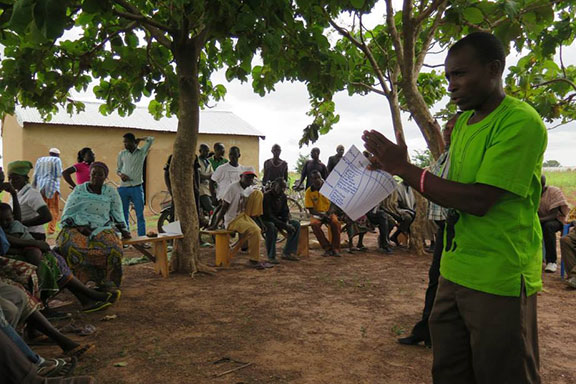The team needs to gather any pre-existing information from relevant reports or government documentation, to avoid duplicating work or making assumptions. Start collecting additional information up to six weeks before the scheduled workshop. This stage isn’t about generating new information – it is just consolidating/synthesizing what already exists. Initially the facilitation team should use this information to inform a draft of the longlists of ‘hazards and social issues’ (natural and human-induced) and ‘vulnerable social groups and livelihood activities.
You can find example of longlists on pages 19-20 in Finding Ways Together to Build Resilience: The VRA methodology.’
At this stage it can be useful to discuss the longlist with some key informants or with community members you have an existing connection too e.g. women’s group or savings committee to help validate the secondary data and begin building consensus before the workshop.
Once you have your verified longlist, this will be taken to the workshop and presented during Step 1, the Knowledge Group will then work together to prioritize the hazards/social issues and affected groups that the VRA should focus on.

